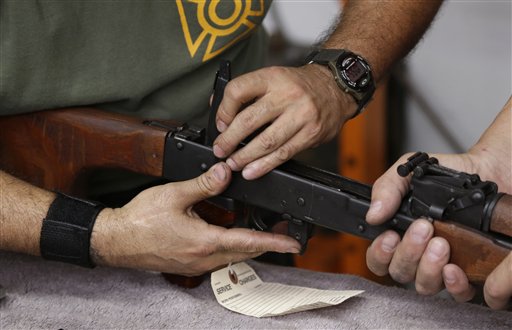
By Angelica DiIorio
As Florida calls for a policy change to redress the increasingly common issue of mass shootings, the state also brings attention back to the issue.
The Criminal Justice Subcommittee of Florida’s House recently passed House Bill 4005, which allows students of at least 21 years to carry concealed weapons or firearms on college or university campuses.
While this bill is trying to confront shootings in general, the state was directly addressing the library shooting at Florida State University that occurred this past November. The shooter was Myron May, a 31-year-old graduate of Florida State, who opened fire in the crowded Strozier Library. Three were injured, including one victim who was paralyzed from the waist down, when May was fatally wounded by Tallahassee police. This event revisited the need to change gun policies because, if one thing is clear, it is that the current system is not working.
While it is admirable of those responsible for this bill, including Florida Representative Greg Steube, to suggest a remedy to gun violence, there are many flaws with this particular approach. This is not to say that American citizens should be denied their second amendment right, but allowing guns on college campuses will not solve the issue at hand.
I do not believe that the promotion of guns is the answer to any problem. While I recognize the right that American citizens have to own a gun, encouragement of gun culture is destructive to peace and safety.
There is no way around it: guns are weapons and weapons kill. They may be used for protection of oneself, others and even the nation, but guns are not facilitators of nonviolence. Also, not only does this bill allow students to own weapons, but they can be hidden as well. This only increases the levels of uneasiness in students who do not have a weapon because, as far as they know, the person next to them could be armed. College campuses instantly would become unsettling zones because the secretive nature of the weapon could frighten others into thinking that violence might erupt any minute. Those in favor of concealed weapons see it as a comfort that someone can surprise an attacker with a gun. Realistically, I think everyone would feel safer if there were no guns present at all, but concealed weapons only leave the discomfort of a ‘who-has-a-gun’ guessing game.
Florida State freshman Daniel Morales was in the library when the November shooting occurred, and he reported hearing a student in the library shout, “Somebody’s got a gun.” It was the gun’s presence that brought the panic. However, this bill’s philosophy suggests that more guns will help terrible situations like this one. Would that situation have been safer had another person in the library stood up to announce that he, too, had a gun on him?
A situation with any number of guns is destructive and people in the surrounding area could easily get injured. Increasing the number of shots fired leaves a greater change of someone getting injured in the crossfire. It also becomes impossible to distinguish who is right and who is wrong when multiple people have guns. In this kind of situation, the person posing the threat is no longer distinguishable from the person trying to defend himself when the police arrive. The main defense for this bill is that innocents should be able to protect themselves from criminals. However, allowing them to carry guns of their own does not make them protectors, but instead makes them no different from those whom they perceive to be a threat.
As stated earlier, only those who are 21 or older can have a gun on campus. Even if one buys into the idea that guns will help provide protection, a large percentage of the student body is still left unarmed. For many universities, it is those under 21 who remain as campus residents. This is the case at Fordham, too, as many students 21 and over decide to live off campus. The protection gun carriers would be able to offer is limited.
A classic response to issues of gun control for all states and situations is to change the intensity of background checks. Mental instability is a very common quality found in instigators of mass shootings and gun related violence in general. In the Florida State shooting, the shooter, Myron May, was paranoid and believed he was being watched by the government. In the Virginia Tech incident of 2011, the shooter, Seung-Hui Cho, struggled with thoughts of suicide. In the Sandy Hook shooting of 2012, shooter Adam Lanza struggled with obsessive-compulsive disorder and a fascination with mass shootings and refused to take prescribed medications. Mental instability is currently a reason for the government’s rejection of a candidate applying for a gun permit, but obviously this check needs to go a step further. Illegal guns should be feared, but legal ones in unstable hands are just as dangerous.
Along with better background checks when applying for gun permits, money and time should be devoted to aid those with mental disabilities. Colleges and universities should devote more money to facilities that better help those with mental instabilities. Not only will individuals in need receive treatment, but they will also have someone monitoring them. If someone had been better informed on the mental state of any one of the previously mentioned shooters, or better informed on what to do to help these people, it is possible that one of these shootings could have been prevented.
Angelica DiIorio, FCRH ’18, is a French and international studies major from White Plains, NY.









































































































































































































